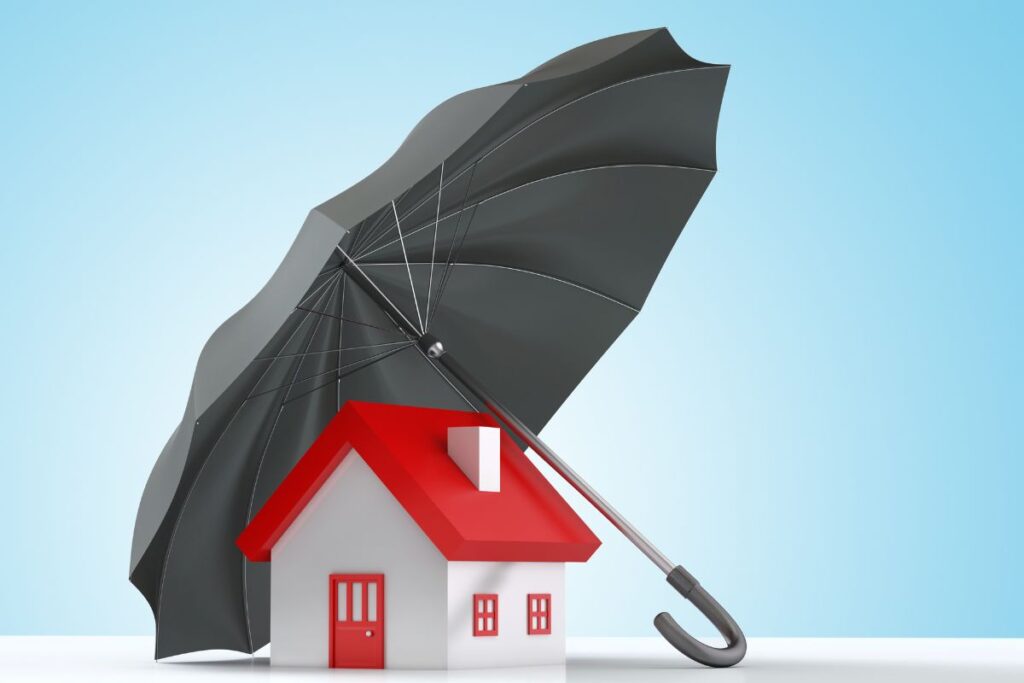Choosing the right home insurance policy is of utmost importance as it provides vital financial protection for homeowners. A home is one of the biggest investments a person can make and having an insurance policy can mitigate the risks and damages that can occur.
A home is susceptible to various potential risks and damages. Fire, theft, and natural disasters such as hurricanes, tornadoes, and earthquakes can cause significant damage to a property. Without proper coverage, homeowners would have to bear the financial burden of repairing or rebuilding their home and replacing their belongings on their own.
Therefore, having the right home insurance policy is essential to protect homeowners from these risks. Dwelling coverage ensures that the structure of the home itself is covered in case of a loss, while personal property coverage provides coverage for personal belongings. Liability insurance protects homeowners if someone gets injured on their property and they are deemed legally responsible.
When selecting a policy, it is important to consider the coverage options. Homeowners should evaluate their needs and choose a policy that adequately covers the potential risks specific to their area and the value of their home and possessions. Additional coverage options such as flood insurance or earthquake insurance can also be added if needed.
In conclusion, choosing the right home insurance policy is crucial for financial protection against the risks and damages that can occur to a home. By considering factors such as dwelling coverage, personal property coverage, liability insurance, and additional coverage options, homeowners can ensure they have the right level of protection for their specific needs.
Understanding Your Needs
Before making any decisions or taking any actions, it is crucial to have a clear understanding of your needs. This goes beyond simply identifying what you want or desire. It involves a deeper analysis of your values, priorities, and goals. Understanding your needs allows you to make informed choices and take purposeful actions that align with what truly matters to you. It involves self-reflection, introspection, and the ability to accurately identify and articulate your desires. By understanding your needs, you are better equipped to make choices that will lead to increased satisfaction, fulfillment, and success in all areas of your life. It is a foundational step in the process of personal and professional growth, as it enables you to set meaningful goals and take intentional steps towards their attainment. In this article, we will explore strategies and techniques to help you gain a better understanding of your needs and harness that knowledge to make informed decisions.
Assessing Your Property
Assessing your property is crucial for a variety of reasons. Not only does it help determine the actual cash value of your home and belongings, but it also helps identify any high-risk locations that may require special attention. Additionally, understanding the potential reliance on insurance can play a key role in safeguarding your property and assets.
The actual cash value is the fair market value of your property and belongings, taking into consideration factors such as age, wear and tear, depreciation, and market conditions. Assessing the actual cash value helps both homeowners and insurers have a clear understanding of the worth of the property, enabling them to make informed decisions regarding coverage and financial planning.
Identifying high-risk locations is equally essential as it allows homeowners to take proactive measures to mitigate potential dangers. Examples of high-risk locations may include areas prone to natural disasters such as hurricanes, floods, or earthquakes. By assessing the property in such locations, homeowners can take necessary precautions like reinforcing structures, installing storm shutters, or choosing flood insurance coverage.
Lastly, property assessment assists homeowners in understanding their reliance on insurance. By assessing the value of their property and belongings, homeowners can evaluate the need for adequate insurance coverage to protect their assets against losses and damages. Recognizing their reliance on insurance can lead to better decision-making when it comes to choosing the right policy and coverage limits.
To assess your property, consider hiring a professional appraiser or conducting a self-assessment. A professional appraiser can provide an accurate valuation of your property, considering various factors such as location, condition, and market trends. Alternatively, a self-assessment can be done by researching property values in your area, considering the condition of your home and belongings, and consulting with real estate agents or insurance professionals.
In conclusion, assessing your property is a crucial step to determine its actual cash value, identify high-risk locations that may require special attention, and evaluate your reliance on insurance. By understanding the importance of property assessment and utilizing appropriate methods, homeowners can safeguard their property and make informed decisions regarding insurance coverage.
– Evaluating the square footage, age, and condition of your home
When it comes to evaluating the square footage, age, and condition of your home, there are several factors to consider. The square footage of your home plays a crucial role in determining its overall value and functionality. Knowing the size of your living space helps in making informed decisions about furniture placement, renovation projects, and overall floor plan optimization. Additionally, the age of your home can influence its market value and maintenance requirements. Older homes may require more frequent repairs and updates compared to newer constructions. Lastly, evaluating the condition of your home is essential for ensuring its safety and livability. This includes inspecting the roof, foundation, electrical and plumbing systems, as well as assessing any major renovations or repairs needed. By evaluating these factors, homeowners can make informed decisions about their property’s potential, potential risks, and necessary steps for improvements.
